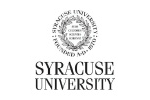



ONLINE HISTORY COURSE
“Machiavelli Misunderstood: The Man, the Prophet, the Myth”
LIVE HISTORY COURSE with Dr. Fabrizio Ricciardelli
Dates: April 28 and May 5 & 12, 2025
Schedule: Mondays
Time: 2:00 – 3:15pm ET | 11:00am – 12:15pm PT |
7:00 – 8:15pm London
Contact Hours: 3 Hours 45 Minutes
Credits: Certificate of Completion
ONLINE HISTORY COURSE
“Machiavelli Misunderstood: The Man, the Prophet, the Myth”
Course Description:
The course delves into the life, works, and enduring legacy of Niccolò Machiavelli, the controversial Renaissance political philosopher. Three lectures are aimed to unravel the complex persona of Machiavelli, often mischaracterized by the adjective “Machiavellian,” suggesting deceit and manipulation. The course will explore his seminal works, including “The Prince” and “Discourses on Livy,” to understand his pragmatic approach to power, governance, and human nature. By placing Machiavelli within the rich tapestry of Renaissance Italy’s political and cultural context, the course highlights the influences that shaped his ideas. Additionally, it addresses the myths and misconceptions that have clouded his reputation over centuries, revealing the true extent of his contributions to modern political thought and leadership. Through critical analysis and contextual study, participants will gain a deeper appreciation of Machiavelli as a profound thinker whose ideas remain relevant in contemporary discourse.
Virtual Classroom: Full access to an online educational platform with videos of recordings, syllabus and readings.
Location: LIVE INTERACTIVE ON-LINE HISTORY LECTURES
Optional Readings:
Information will be provided 2 weeks before the start of the course.
Complete syllabus will be provided 2 weeks before the start of the course.
LECTURE 1 – The Man
-Monday, April 28
Niccolò Machiavelli (1469-1527) was a Renaissance political theorist, historian, and diplomat from Florence, Italy. Best known for his treatise “The Prince,” Machiavelli’s writings often reflect his pragmatic and, at times, cynical view of political power and statecraft. Serving as a senior official in the Florentine Republic, he was deeply involved in diplomacy and military affairs, which provided him firsthand experience in the machinations of political leadership. His career, however, was marred by the political turbulence of the time, leading to his imprisonment and eventual exile following the return of the Medici family to power. Despite his personal misfortunes, Machiavelli’s work has left an indelible mark on political theory, with his name becoming synonymous with realpolitik and the notion that the ends justify the means. His incisive observations on human nature and governance continue to provoke debate and study, cementing his legacy as one of history’s most influential political thinkers.

LECTURE 2 – The Prophet
-Monday, May 5
Niccolò Machiavelli, often hailed as a prophet of modern political science, exhibited an uncanny ability to foresee and articulate the dynamics of power and governance that remain relevant today. In “The Prince,” he not only dissected the strategies employed by successful rulers but also anticipated the complexities and moral ambiguities of political leadership. His insights into the necessity of pragmatism, the manipulation of public perception, and the balance of fear and love in rulership reveal a profound understanding of human nature and political reality. Machiavelli’s prescient observations have been interpreted as a guide for leaders navigating the volatile and often ruthless landscape of political power. His vision extended beyond his time, predicting the enduring struggles and ethical dilemmas faced by those in power. As a prophet, Machiavelli illuminated the perennial truths of political strategy, influencing not just his contemporaries but generations of thinkers and leaders who continue to grapple with the principles he so vividly described.

LECTURE 3 – The Myth
-Monday, May 12
Machiavelli the Myth represents the enigmatic and often misunderstood figure whose name has become synonymous with cunning, duplicity, and unscrupulous political maneuvering. This mythologized version of Niccolò Machiavelli stems primarily from his seminal work, “The Prince,” which has been interpreted by some as a ruthless guide for autocrats. The term “Machiavellian” has come to describe any action characterized by deceit and strategic manipulation. However, this one-dimensional portrayal oversimplifies the man and his broader body of work, which includes republican ideals expressed in “Discourses on Livy” and a profound concern for the stability and prosperity of the state. The myth often ignores Machiavelli’s context, where his pragmatic advice was aimed at securing Italian unification and protecting Florence from external threats and internal strife. Over centuries, the myth of Machiavelli has been perpetuated by both admirers and detractors, overshadowing the nuanced, complex thinker who grappled with the moral and practical dilemmas of political leadership.

Fabrizio Ricciardelli earned his undergraduate degree in Medieval History at the University of Florence (Italy) and his Ph.D. at the University of Warwick (England). Since 2004 hew was professor of “Renaissance History” at Georgetown University. Between 2010-2012 he was Academic Director of the Georgetown University program in Florence. In 2010 he became Chairman of the scientific committee “Villa Le Balze Studies”. In 2012 he was appointed Director of the Kent State University program in Florence. His academic experience includes journal articles, conference presentations, and several reviews. He has authored and co-authored numerous books on institutional and political history. His main field of study is Italian city-states in the social, economic, political, and cultural landscape of Medieval Europe. Ricciardelli has recently embarked upon the study of the relationship between emotions and passions as forms of political persuasion in Renaissance Italy. His latest publication are A Short History of Florence(2019) and The Medici. The Power of a Dynasty(2021).














